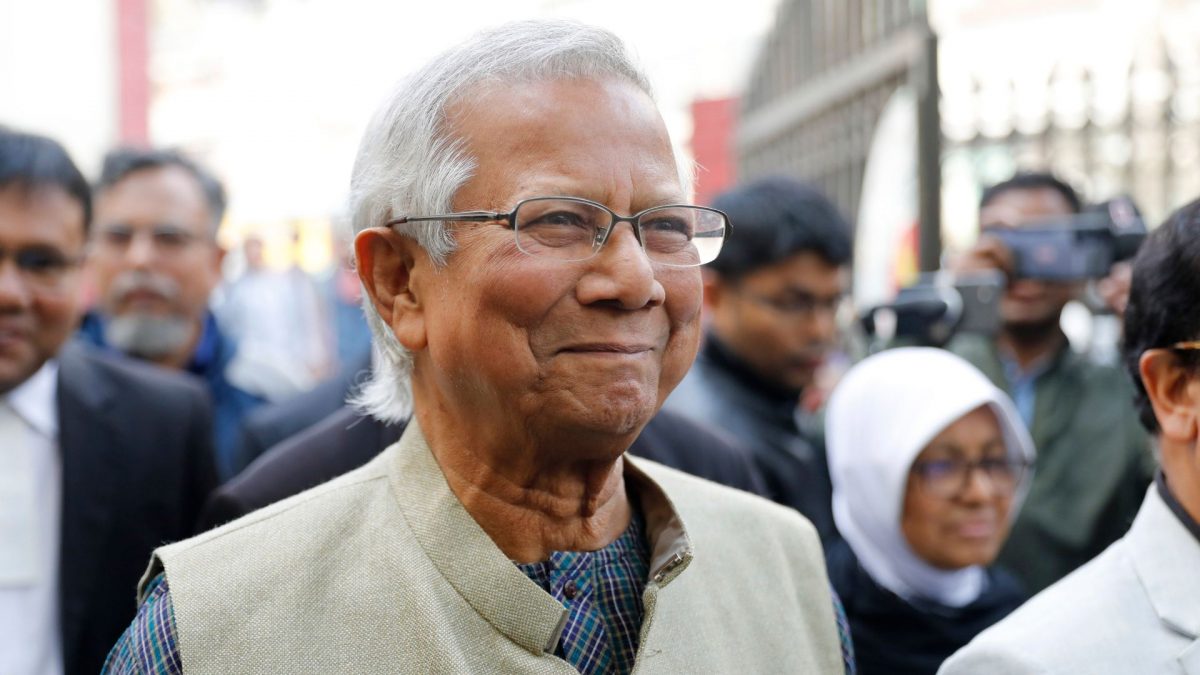Nobel laureate Amartya Sen expressed grave concern about the current situation in Bangladesh, saying his friend Muhammad Yunus, chief adviser to the neighbouring country’s interim administration, is making significant changes but faces a long road ahead to settle the impasse.
Sen said the situation in Bangladesh had severely affected him, and he was concerned about how the country would deal with the challenges ahead.
Sen told PTI in an exclusive interview at his residence in Santiniketan, West Bengal’s Birbhum district, that Bangladesh, which has mostly kept sectarian movements like the Jamaat under control, should maintain its remarkable dedication to secularism.
“The situation in Bangladesh affects me deeply because I have a strong Bengali sense of identity,” Sen told PTI.
“I have spent a lot of time in Dhaka and began my school education there. Aside from Dhaka, I often visited my ancestral home in Manikganj. On my maternal side, I regularly visited Bikrampur, particularly Sonarang. These places have deep personal significance for me. Like many others, I am worried about how Bangladesh will overcome its current challenges,” he said.
Sen, who grew up in Dhaka, began his formal education at St. Gregory’s School. He eventually relocated to Santiniketan, where he attended the school of Nobel laureate Rabindranath Tagore.
Regarding Bangladesh’s development after gaining independence, Sen emphasised the nation’s advances in per capita income, which at one time surpassed that of India, as well as a significant drop in birth rates and a greater life expectancy than India.
“Bangladesh has undergone major economic and social transformations, particularly in advancing women’s rights, with contributions from both the government and non-governmental organisations like BRAC and Grameen Bank,” he said.
Impact Shorts
More ShortsSen also noted that newspapers in Bangladesh remained “relatively free”, with many flourishing despite taking strong anti-government positions.
He praised the Bangladeshi Army for its restraint in not attempting to establish military rule, as has happened in many other countries.
He cautioned against banning the Awami League, arguing that such a move would repeat the same mistakes that other parties had accused the Awami government of making.
“I think Bangladesh should make the best use of its tradition of working together rather than attempting to sideline any particular group. A broader perspective is needed. I hope that the Bengali commitment to freedom and pluralism will persist. And I hope future elections will be more visibly free than many claim they have been. There is room for change. I am worried about Bangladesh, but I am not without hope,” he said.
Asked about his assessment of Muhammad Yunus as Bangladesh’s chief advisor, Sen remarked, “Yunus is an old friend. I know he is highly capable and, in many ways, a remarkable human being. He has made strong statements about Bangladesh’s secularism and democratic commitment.” “If you suddenly become the head of a country, as Yunus effectively has, you must consider various factions. There are Islamic parties, and now Hindu factions as well. I have great confidence in Yunus’ abilities,” Sen said.
Sen strongly condemned attacks on Hindu minorities and the vandalisation of temples, emphasising that it was the responsibility of both the government and the public to prevent such violence.
“This is an important issue because Bangladesh has historically taken pride in its treatment of minorities and its efforts to keep communal forces like Jamaat in check. Unfortunately, there have also been attacks on mosques in India. These incidents, whether in Bangladesh or India, must stop,” he asserted.
“There is nothing easier than fueling communalism by selectively amplifying certain incidents. This is how the Hindu-Muslim riots of the 1940s escalated, leading to bloodshed. We must reflect on our past and consider our future in that light. Selective publicity can be extremely dangerous,” Sen warned.
)